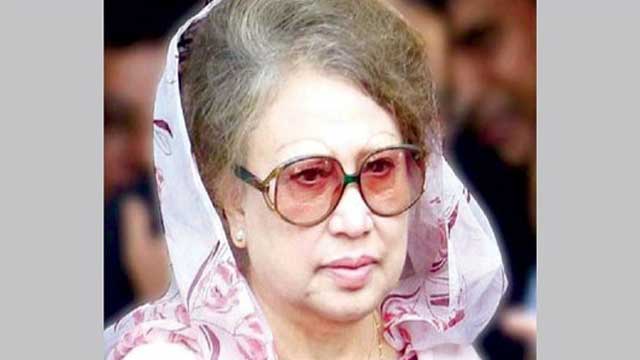The condition of Bangladesh Nationalist Party chairperson and former prime minister Begum Khaleda Zia has become unpredictable as she is being wicker gradually.
‘She suffered internal haemorrhage for at least four times in a month and she is still suffering from intermittent internal bleeding as its source cannot be identified,’ a member of Khaleda Zia’s medical team told New Age on Monday.
He said that the medical team hold a meeting on Sunday night and another meeting at Monday evening.
‘Doctors are trying their best. But she [Khaleda] needs treatment at an advanced medical centre which is available in a few countries,’ he said.
The former PM’s medical team on November 28 cautioned that she, having been diagnosed with liver cirrhosis and haemorrhage in the stomach, should be taken abroad for advanced treatment.
She needs treatment with the help of ‘transjugular intrahepatic portosystemic shunt or TIPS’, they said.
Fakhruddin Mohammad Siddiqui, a member of the medical team, told a press briefing that saving her life without TIPS treatment would be almost impossible. The TIPS technology is available only in some advanced centres in the USA, the UK and Germany, he mentioned.
According to doctors, TIPS is an artificial channel set up within the liver for establishing a link between the inflow portal vein and the outflow hepatic vein. This technique is often used to treat portal hypertension that occurs due to liver cirrhosis, they said.
Khaleda, 76, was readmitted to Evercare Hospital in the capital on November 13, six days after she had returned home from the hospital.
Khaleda’s younger brother Shamim Iskander applied to the home ministry on November 11, urging the government to allow her to go abroad for better treatment.
On March 25, 2020, amid the Covid situation, the government suspended her jail sentences in two graft cases and released her from the prison cell of Bangabandhu Sheikh Mujib Medical University on conditions that she would take medical treatment at home and would not leave the country.





